The landscape of influencer marketing is rapidly evolving, thanks to the advent of artificial intelligence. We at Emplibot believe that understanding this evolution is pivotal for brands looking to fine-tune their marketing strategies. AI not only streamlines influencer discovery but also sharpens targeting and enhances content engagement. This blog post explores how AI is changing the game in influencer marketing, offering practical insights for brands to harness its power effectively.
Contents
ToggleAI’s Role in Influencer Marketing
Artificial Intelligence (AI) is revolutionizing influencer marketing, making precision targeting and audience segmentation more efficient than ever before. By analyzing vast amounts of data, AI enables brands to identify and engage with niche markets that match their ideal customer profile. This targeted approach ensures that marketing efforts are not wasted on uninterested audiences, ultimately improving the ROI for influencer campaigns.
Moreover, AI plays a crucial role in content optimization. Through data analysis, AI can pinpoint what type of content resonates most with a specific audience segment. This includes determining the optimal time for posting, the most engaging content formats, and even the ideal content length. Such insights enable influencers and brands to tailor their content strategies for maximum engagement, ensuring that every piece of content has the greatest impact.

Another significant advantage of using AI in influencer marketing is its ability to identify emerging trends and perform predictive analysis. AI tools can sift through social media data to spot patterns and predict future trends before they become mainstream. This allows brands to stay ahead of the curve, innovating with their influencer marketing strategies to capture audience interest early on.

To leverage these AI capabilities effectively, brands must invest in the right tools and technologies. Platforms like Brandwatch and Upfluence use AI to provide valuable insights into audience demographics, engagement rates, and even influencer performance. Utilizing such platforms can help brands refine their influencer selection process, ensuring they partner with influencers who truly resonate with their target audience. For a deeper understanding of how AI enhances social media analysis, exploring resources on analyzing social media with AI can offer valuable insights.
Practically speaking, brands should focus on:
-
Using AI for data-driven influencer selection, considering factors like audience overlap, engagement rates, and content relevance.
-
Leveraging AI tools for real-time campaign tracking, allowing for adjustments on-the-fly to maximize engagement.
-
Engaging in predictive trend analysis to anticipate shifts in consumer interests and adapt influencer collaborations accordingly.
By integrating AI into their influencer marketing strategy, brands can improve targeting accuracy, enhance content engagement, and anticipate market trends, staying one step ahead in the dynamic digital marketplace.
Enhancing Influencer Discovery
Finding the right influencers to collaborate with can be daunting for brands, yet it’s essential for running successful marketing campaigns. Artificial Intelligence (AI) significantly simplifies this process by streamlining influencer identification, enabling efficient brand alignment matching, and facilitating negotiations and performance tracking. Here’s how brands can integrate AI to refine their influencer discovery and collaboration.
Firstly, streamlining influencer identification with AI tools is a game-changer. Instead of manually sifting through social media profiles or relying on gut feeling, AI analyzes data points to identify potential influencers. This process considers factors like audience demographics, engagement rates, and content style to recommend influencers who are most likely to resonate with the brand’s target audience. AI does the heavy lifting, sorting through the noise to find those hidden gems.
Next, ensuring brand alignment is non-negotiable. It’s not just about finding influencers with a vast following; it’s crucial that their values, aesthetics, and audience align with the brand. AI aids in this by comparing influencer profiles against the brand’s requirements to ensure a perfect match. This precision in selection not only enhances campaign coherence but also fosters authenticity.
Moreover, AI facilitates contractual negotiations and performance tracking. Negotiating with influencers and monitoring campaign performance are both critical yet time-consuming tasks. AI can predict an influencer’s worth based on historical data, streamlining the negotiation process. For tracking, AI tools provide real-time analytics on engagements, reach, and conversions, making it easier to gauge campaign effectiveness and ROI.
Brands must incorporate AI into their strategy to harness these benefits fully. Embracing technologies such as AI allows brands to operate more efficiently, ensuring that resources are used effectively for the best possible outcomes in influencer marketing.

Here are practical tips to get started:
-
Evaluate AI Tools: Choose AI platforms like Brandwatch or Upfluence that meet your brand’s specific needs in influencer marketing.
-
Data-Driven Decisions: Make decisions based on data analytics provided by AI to ensure a higher success rate for your campaigns.
-
Monitor Performance: Use AI for real-time campaign monitoring and adjust strategies based on performance metrics.
In conclusion, AI revolutionizes influencer marketing by making discovery and collaboration more data-driven, efficient, and aligned with brand goals. Brands ready to elevate their influencer marketing should explore adding AI to their toolkit. For further insights into optimizing your influencer marketing strategy, reading about social media analysis with AI might offer additional valuable strategies.
Measuring AI Campaign Success
In the world of influencer marketing boosted by artificial intelligence, understanding the impact of your campaigns is not just a bonus—it’s necessary for survival and growth. A meticulous approach towards measuring success ensures your strategy remains agile, responsive, and, most importantly, profitable. Let’s take a closer look at how brands can wield advanced analytics, real-time adjustments, and continuous improvement practices to stay ahead of the curve.
Harness Advanced Analytics
The cornerstone of any successful AI-enhanced influencer campaign is a solid analytics framework. Unlike traditional methods which can sometimes feel like shooting in the dark, AI-driven analytics offer a granular view of campaign performance. This includes beyond-the-surface metrics like engagement rate improvements over time, sentiment analysis in comments, and CTRs for specific calls-to-action. For example, an increase in positive sentiment on posts associated with your brand might be a better indicator of success than just likes or shares, as it speaks to the quality of engagement.
Brands should prioritize platforms that not only track these advanced metrics but also visualize them in an intuitive way. Understanding the correlation between different types of engagement and final sales is key. For instance, identifying which influencer’s content led to the most sign-ups or sales can help optimize future influencer selections. Embracing tools that integrate seamlessly with your sales data can facilitate this analysis.

Implement Real-Time Adjustments
Agility in marketing is more than a buzzword; it’s a lifeline. AI allows brands to not just track performance in real-time but also make adjustments mid-campaign. Suppose an influencer’s video content is generating more engagement and conversions compared to their image posts. In that case, brands can quickly pivot, advising the influencer to focus more on that content type. A/B testing, a fundamental of the digital marketing toolkit, becomes supercharged with AI, allowing brands to test different content formats, posting times, and even influencer messaging styles on the fly.
A practical step is setting up a real-time dashboard that alerts you to shifts in campaign performance metrics. Acting on this information rapidly can significantly enhance campaign outcomes.
Focus on ROI and Continuous Improvement
Ultimately, the goal of any marketing effort is to generate a positive return on investment (ROI). With AI, calculating the ROI of influencer campaigns becomes less of a headache. AI tools can track the direct sales generated from influencer campaigns, attributing revenue to specific posts or influencer partnerships. This level of insight is invaluable for not only proving the worth of current campaigns but also forecasting future campaign performances.
Yet, it’s not only about looking at the numbers but understanding what they tell you about consumer behavior, content preferences, and potential market shifts. Continuous learning and adaptation are essential. Leverage AI to gather insights on what worked best and areas for improvement, feeding this information back into your strategy for each new campaign.
Practical Tips for Brands:
-
Invest in AI Tools: Prioritize platforms offering deep analytics and integration with sales data.
-
Stay Agile: Set up systems for real-time monitoring and be ready to adjust tactics as needed.
-
Evaluate and Learn: Consistently assess campaign ROI and apply learnings towards continuous improvement.
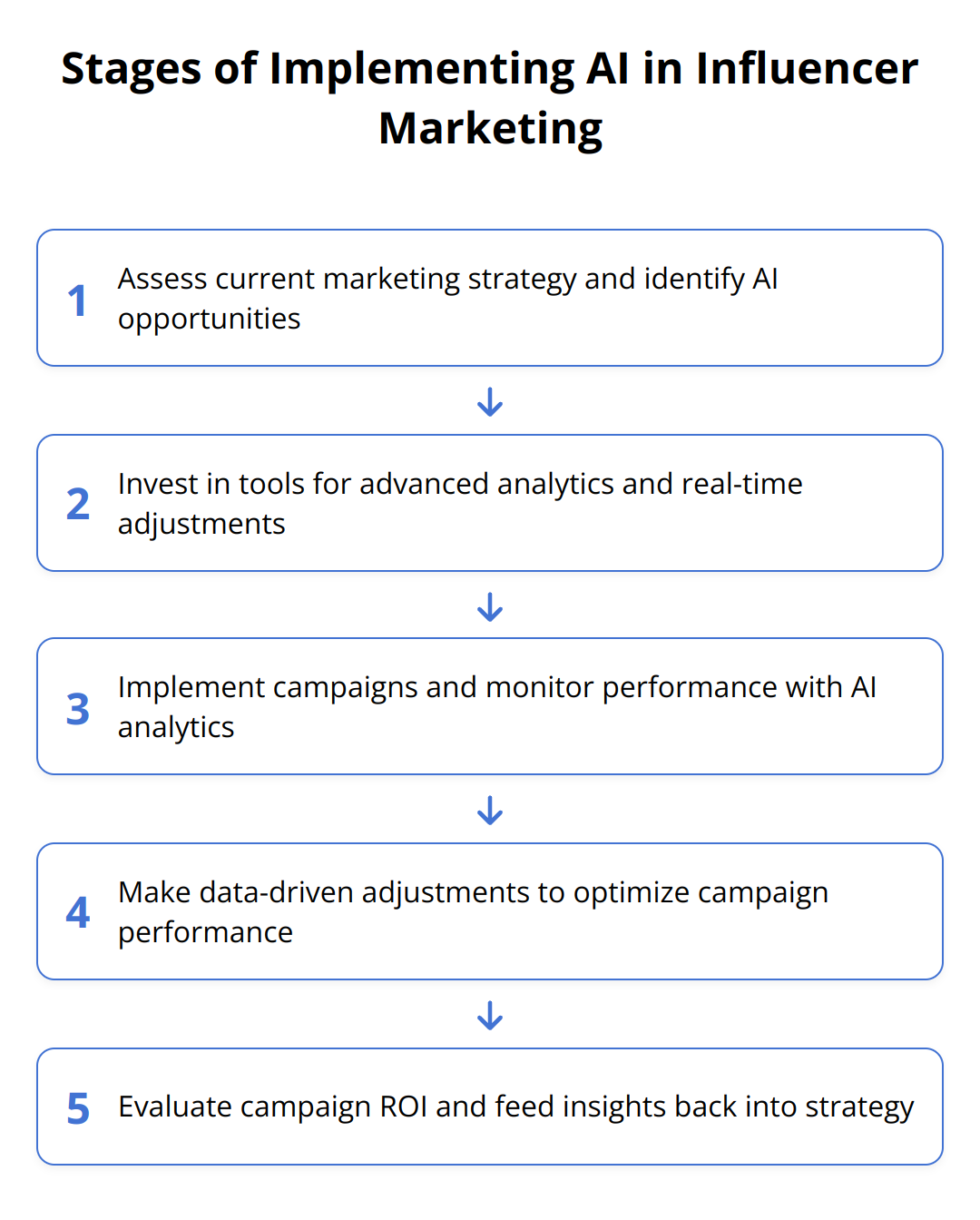
For more insights on leveraging AI tools in digital marketing, consider reading about AI in digital advertising.
By treating each campaign as both a snapshot and a lesson, brands can refine their influencer marketing strategies to achieve high-impact results in an ever-changing digital landscape.
Wrapping Up
Artificial Intelligence (AI) has undeniably transformed influencer marketing, refining every aspect from influencer discovery to measuring the success of campaigns. By offering precision targeting, advanced analytics, and the ability to make real-time adjustments, AI equips brands with the tools necessary to execute highly efficient and effective campaigns. The journey through AI’s impact on influencer marketing highlights not only the current benefits but also the exponential potential for future innovations and the challenges that may arise.
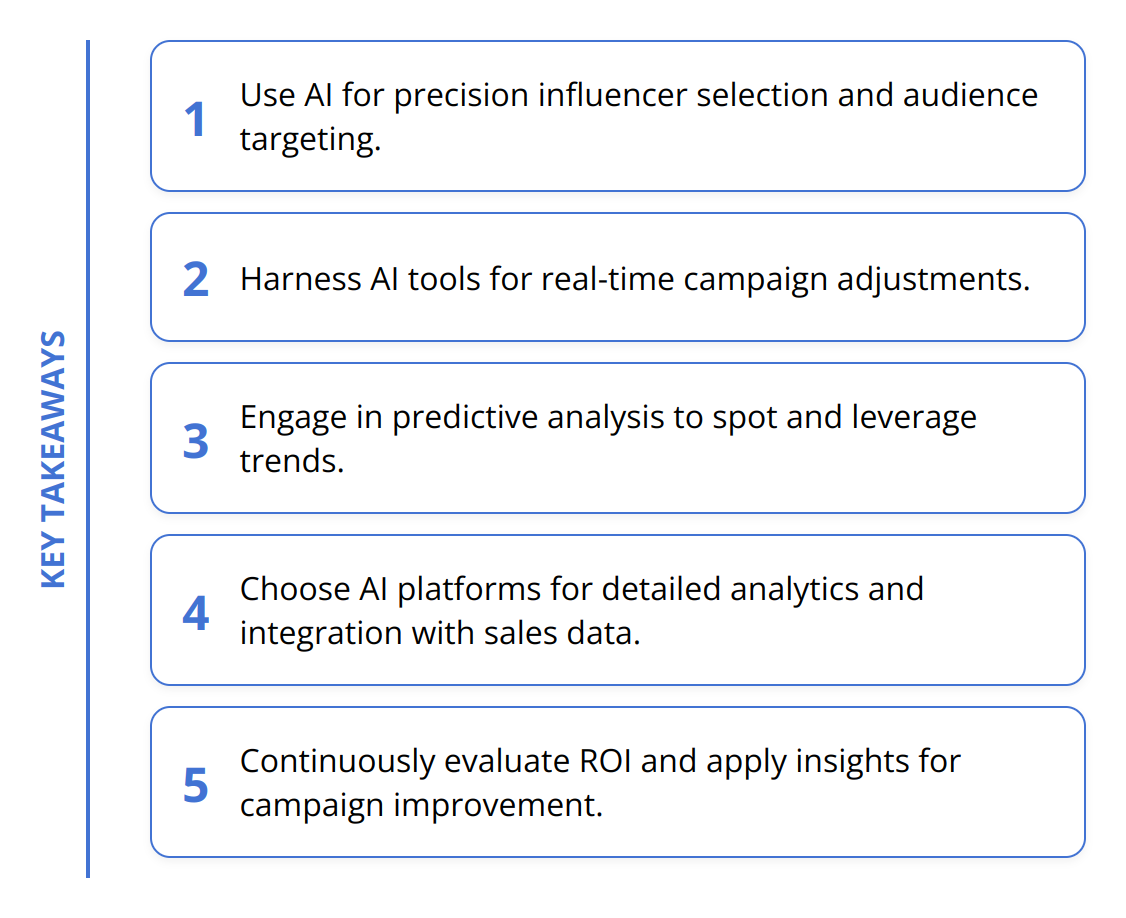
As we look towards the horizon, the potential for AI in influencer marketing is boundless. Innovations in AI could further personalize consumer experiences, enhance content relevance, and even streamline communication between brands and influencers. However, amid these advancements, brands must navigate challenges such as maintaining authenticity, ensuring ethical AI use, and managing the complexities of data privacy.
It’s an exciting time for brands to leverage AI, pushing boundaries and achieving unprecedented campaign success. Yet, success in this arena requires not just adopting AI technologies but also a commitment to continuous learning and adapting to the evolving digital landscape.
For brands ready to deepen their engagement in this dynamic field, incorporating AI into your marketing strategy will be a defining factor in standing out and succeeding. Alongside AI, embracing tools that support your digital marketing efforts, like Emplibot, is essential. Emplibot can automatize the publication of SEO-friendly articles to your WordPress site, taking care of keyword research, images, and internal linking, allowing you to focus on strategic implementation and creativity.
In conclusion, AI’s role in influencer marketing is far from a fleeting trend; it’s a foundational shift towards more impactful, data-driven, and personally resonant campaigns. Brands that recognize this and leverage AI effectively will not only navigate the present landscape more skillfully but also shape the future of digital marketing.

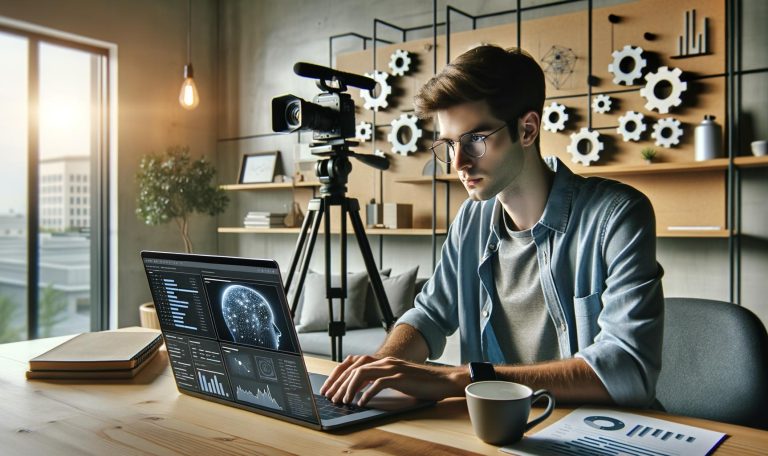

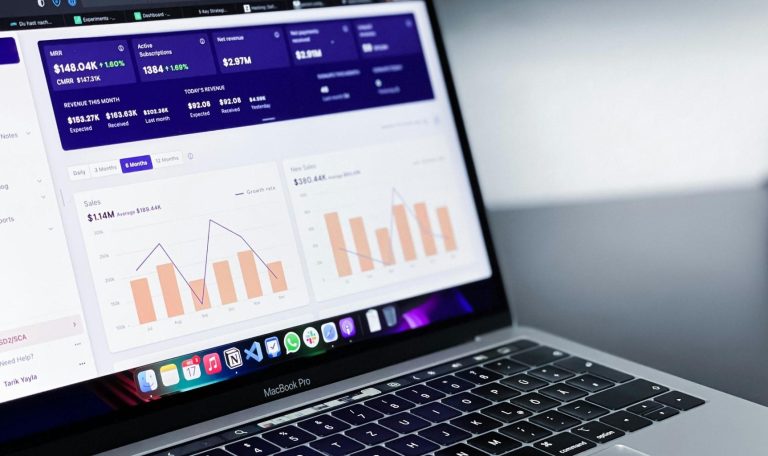
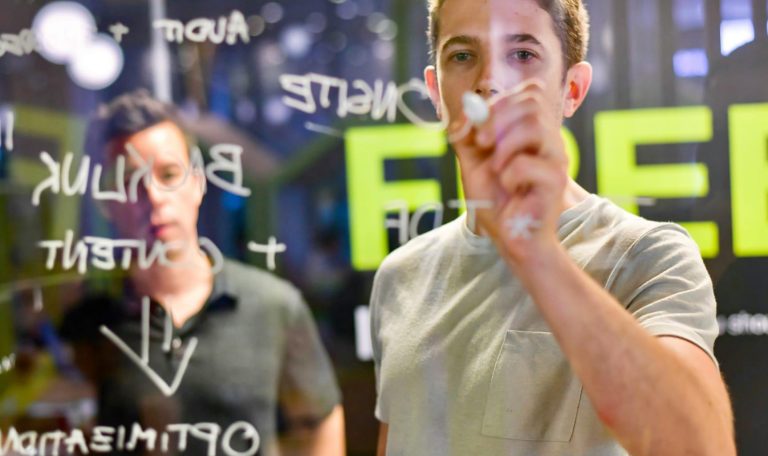


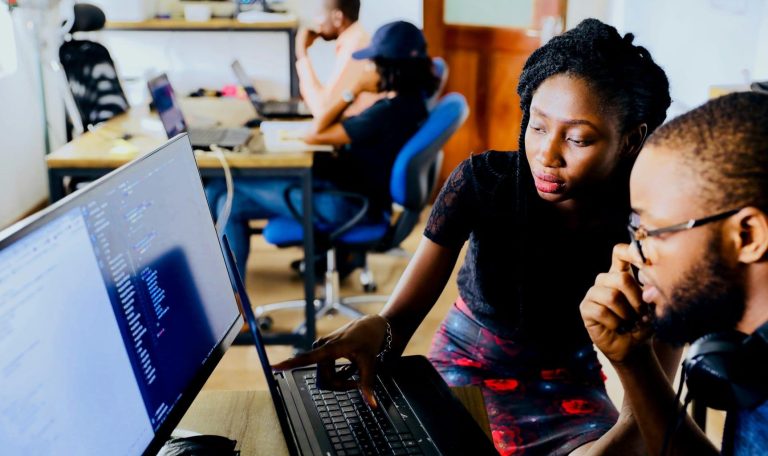


 Rated Excellent 4.5
Rated Excellent 4.5